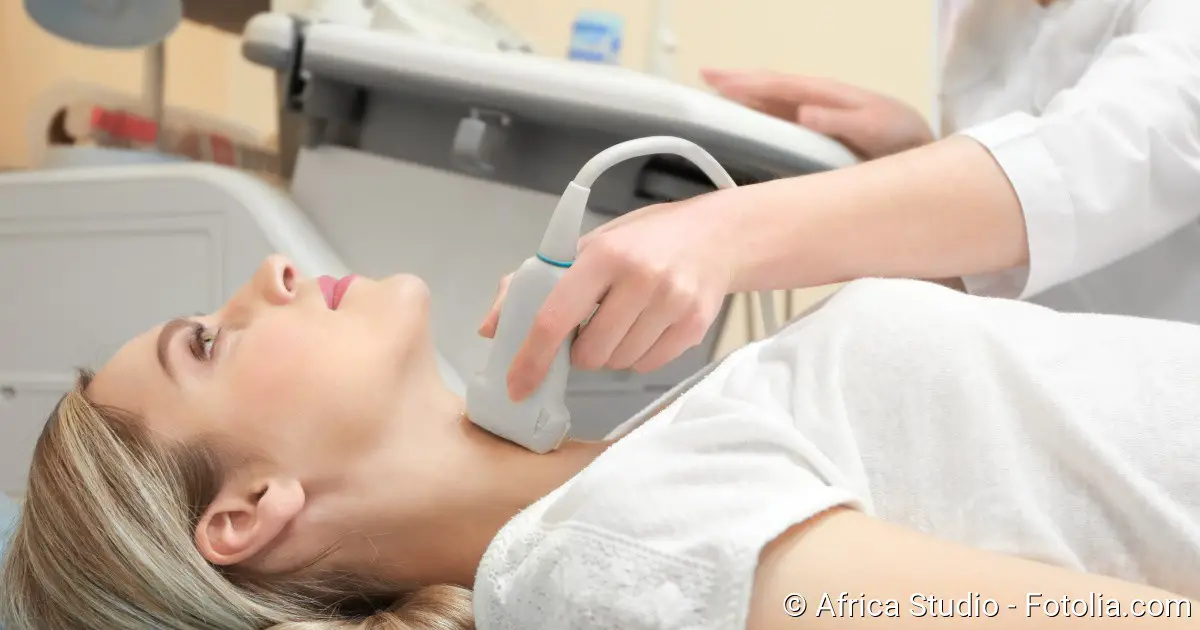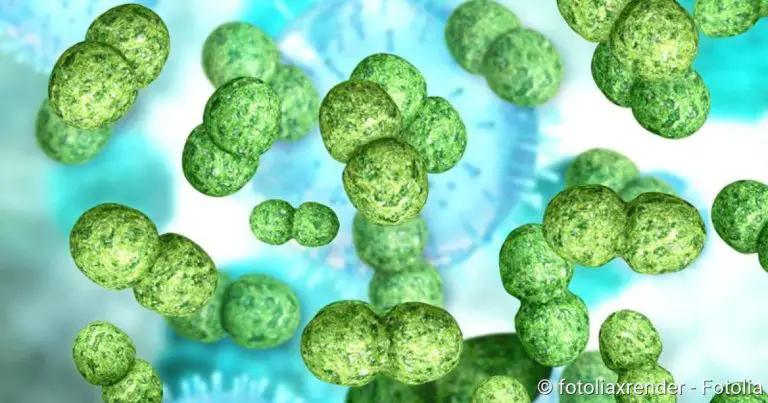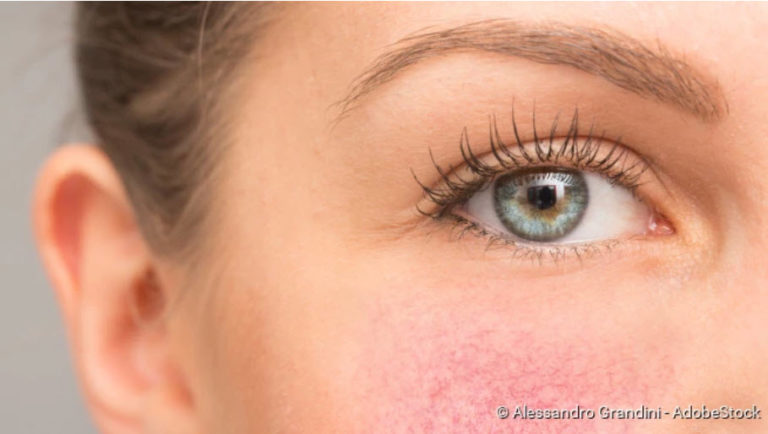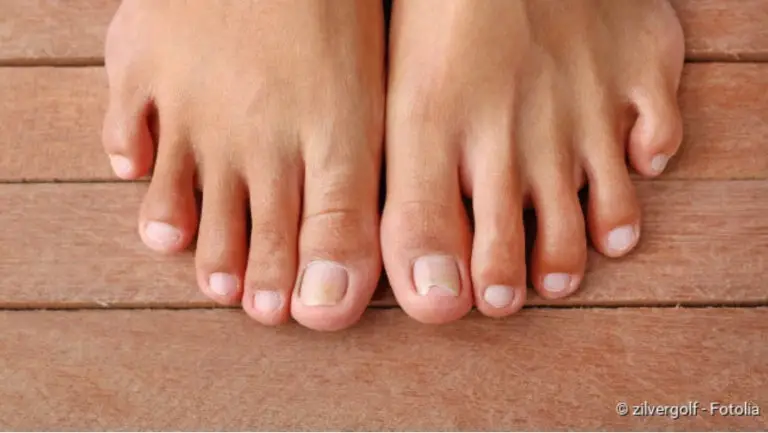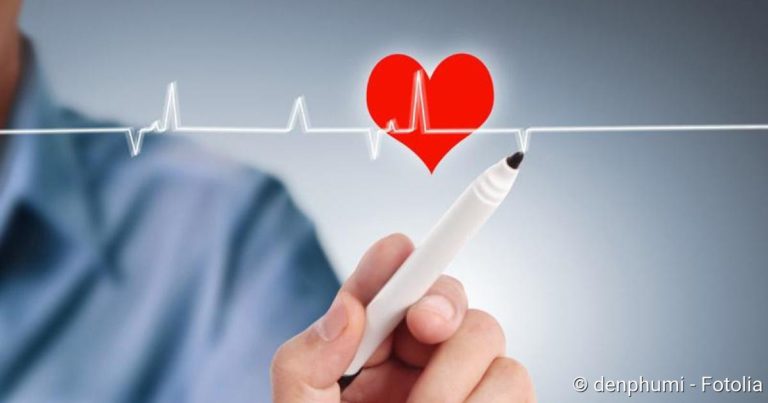Hypothyroidism: symptoms, treatment, and causes
Hypothyroidism: symptoms, treatment, and causes
The term hypothyroidism is used by physicians to describe a deficient hormone production of the thyroid gland (Source). The hormone deficiency slows down all metabolic processes in the body and reduces performance (Source). Hypothyroidism is one of the most common metabolic diseases (Source). Women suffer more often from hypothyroidism than men (Source). Here you will learn everything important about symptoms, causes, and treatment of hypothyroidism (Source).
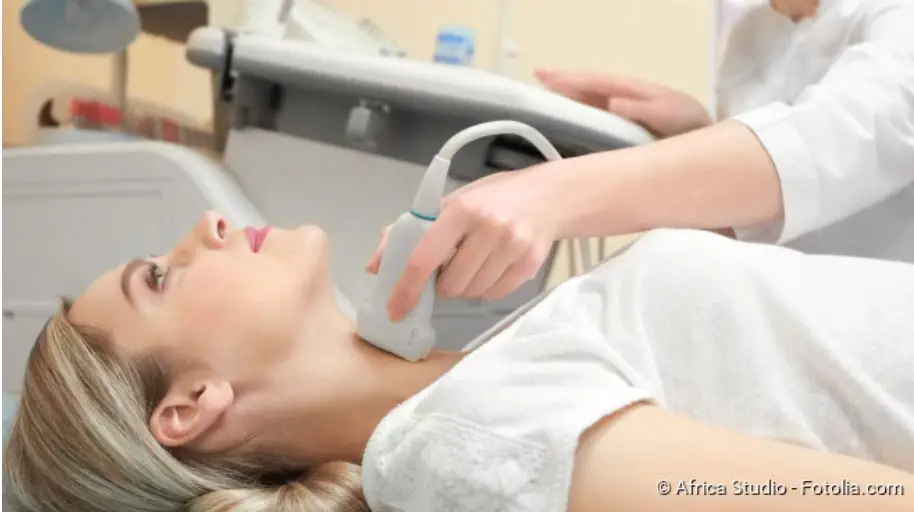
Hypothyroidism – short overview
- Common symptoms: Fatigue, weight gain, constipation, depression, freezing (Source)
- Important research: Blood test for thyroid levels, ultrasound, scintigraphy
- Treatment options: L-thyroxine tablets
- Attention: Check hormone dose regularly (TSH value), correct treatment is particularly important during pregnancy
- Specialist: internal medicine (endocrinology), gynecology (for pregnant women), family doctor
Hypothyroidism: symptoms
In hypothyroidism, the thyroid produces too little of the two hormones thyroxine (T4) and triiodothyronine (T3). They influence almost all metabolic processes in humans and are therefore vital. While a slight hypothyroidism usually causes hardly any symptoms, a severe hormone deficiency slows down almost the entire metabolic activity considerably and causes severe symptoms.
General symptoms
Frequent symptoms of hypothyroidism include poor performance and concentration as well as fatigue. Other possible symptoms of hypothyroidism are disturbances of consciousness, sense of orientation and memory, and an increased sensitivity to cold. The reflexes may be slowed down and muscles tend to cramp more often.
Externally, hypothyroidism can cause signs such as a swollen face with thickened lips and enlarged tongue, swelling around the eye sockets, and thus slit-like narrowing of the eyelids. The skin can be cool, dry, rough, and thickened; sometimes yellowish discoloration occurs (storage of the dye carotene!).
In addition, hypothyroidism can trigger hair loss and make hair shaggy and dull. A rough, hoarse voice and possibly a goiter (struma) are other possible symptoms – they are caused by the pressure of an enlarged thyroid gland on the nerves of the larynx.
Hypothyroidism can also cause the following symptoms:
- Depressive mood
- Constipation
- Weight gain without changing eating habits
- Slowing of the heartbeat (bradycardia), enlargement of the heart, low blood pressure
- Circulatory disorders with sensations (like “formication”)
- Cycle disorders in women
- Restrictions of sexual desire (libido), fertility and potency (Erectile Dysfunction = Impotence)
Sometimes hypothyroidism alters blood values such as the amount of hemoglobin and red blood cells. While these parameters may decrease in hypothyroidism, cholesterol levels are often elevated. This can lead to premature hardening of the arteries (arteriosclerosis).
Hashimoto’s thyroiditis – i.e. acquired hypothyroidism as a result of chronic inflammation of the thyroid gland – can also be accompanied by shrinking of the stomach lining (chronic atrophic gastritis) and other autoimmune diseases.
Symptoms in older people
In older people, the only symptoms of hypothyroidism are often sensitivity to cold, poor performance in normal activities or depression. Often such signs are misinterpreted as signs of aging, dementia or depression, and the actual cause – hypothyroidism – remains undetected.
Symptoms in babies
Babies with congenital hypothyroidism show a lack of movement, weakened muscle reflexes, and a reluctance to drink immediately after birth. Intestinal constipation and prolonged neonatal jaundice may also indicate neonatal hypothyroidism. If the hormone deficiency remains untreated, growth retardation, delayed mental development, and speech development disorders will occur in the further course of the disease. This severe form of untreated hypothyroidism is called cretinism.
Latent hypothyroidism: symptoms
The symptoms mentioned, such as poor performance and concentration, fatigue, etc., apply to manifest hypothyroidism, i.e. hypothyroidism with a measurable lack of thyroid hormones and elevated TSH levels. A different picture emerges for latent hypothyroidism: Symptoms such as those mentioned above do not occur here or only occur to a minor extent. This is because in “hidden” hypothyroidism the concentration of thyroid hormones is not (yet) reduced, only the TSH value is increased.
Hypothyroidism: causes and risk factors
Superordinate centers in the brain – hypothalamus and pituitary gland – control the production of thyroid hormones: The hypothalamus secretes the hormone TRH. It stimulates the pituitary gland to release the hormone TSH. This, in turn, promotes the production of thyroid hormones.
Centers in the brain (hypothalamus and pituitary gland) are responsible for controlling the production of thyroid hormones. When the hypothalamus releases the hormone TRH, this stimulates the pituitary gland to release the hormone TSH. TSH, in turn, triggers the production of thyroid hormones.
The causes of hypothyroidism can occur at any of three levels: through disturbances in the function of the thyroid gland itself, through disturbances in TSH production in the pituitary gland, or through insufficient stimulation of the pituitary gland by the hypothalamus. Doctors accordingly distinguish different forms of hypothyroidism:
Primary hypothyroidism
Primary hypothyroidism is by far the most common form of hypothyroidism. The cause of the disease lies in the thyroid gland itself. The causes may be congenital or may only occur in the course of life:
Congenital hypothyroidism
Some children are born without a thyroid gland (athyreosis). In others, the thyroid gland is malformed (thyroid dysplasia), or mistakes are made in the production of thyroid hormones. Even if a pregnant woman receives too high a dose of therapy for hyperthyroidism, the child in the womb may develop hypothyroidism.
Acquired hypothyroidism
Acquired hypothyroidism is in most cases the result of a chronic inflammation of the thyroid gland. This so-called Hashimoto’s thyroiditis is an autoimmune disease: the body produces special antibodies that destroy its own thyroid tissue. It can then no longer produce sufficient amounts of thyroid hormones. Why the body produces the antibodies is still unclear.
Acquired hypothyroidism can also be the result of previous medical treatment. For example, the therapy of hyperthyroidism sometimes overshoots the mark: Both irradiation with radioactive iodine and treatment with drugs for hyperthyroidism can disrupt hormone production so permanently that hyperthyroidism turns into hypothyroidism.
Thyroid surgery (e.g. for goiter = struma) can also lead to hypothyroidism if there is not enough healthy thyroid tissue left.
Sometimes iodine deficiency plays a role in the development of acquired hypothyroidism: the thyroid gland needs the trace element to produce thyroid hormones. Anyone who takes up too little iodine with their food can develop an extreme iodine deficiency and consequently hypothyroidism.
The signs of hypothyroidism such as fatigue, severe concentration disorders, weight gain, constipation, slow pulse, and tendency to freeze are rather unspecific. However, if two or three of these symptoms occur simultaneously over a period of at least two weeks permanently, one should see a doctor.
Salt In Hypothyroidism
What about salt? In many Western countries, the iodine content in the normal diet is so low that there is no need to fear any effects. Even Hashimoto patients are allowed to use iodized table salt, go to sea, and eat sea fish. Only algae with a very high iodine content should be avoided, as this can worsen the disease.
Secondary hypothyroidism
The cause of hypothyroidism is secondary hypothyroidism in the pituitary gland: it produces too little TSH, the hormone that stimulates the thyroid to produce hormones. The reason for this can be a tumor in the pituitary gland, or its surgical removal or irradiation. Craniocerebral trauma can also damage the hypophysis. Secondary hypothyroidism is rare.
Tertiary hypothyroidism
Even rarer is tertiary hypothyroidism, which is caused by the hypothalamus. It then produces too little of the hormone TRH, which ultimately regulates thyroid hormone production via the pituitary gland.
Hypothyroidism – Frequency
Approximately one percent of the population suffers from an under-function of the thyroid gland. About one in 3,500 newborns are born with hypothyroidism. This is called a primary congenital hypothyroidism.
In addition to these patients with manifest hypothyroidism, there are also numerous people who have a so-called latent hypothyroidism: The blood levels of thyroid hormones are normal for them, but the TSH is already elevated. This means that the thyroid gland only produces sufficient amounts of hormones when it is strongly stimulated by the pituitary gland. Latent hypothyroidism can later develop into a manifest hypothyroidism.
Hypothyroidism: examinations and diagnosis
Hypothyroidism – medical examinations
If hypothyroidism is suspected, the doctor will first ask you about the typical symptoms and then examine you physically. He can, for example, feel the texture of your skin or even palpate the front of your neck where the thyroid gland is located. This enables him to assess their size and consistency.
Laboratory values of thyroid hormones
It is also important to take a blood sample. One of the most important blood values for clarifying a suspicion of hypothyroidism is the TSH value. The concentration of this hormone in the blood tells us how strongly the thyroid gland must be stimulated to produce enough thyroid hormones. If the thyroid gland is underactive, the TSH concentration in the blood is usually elevated.
You can read more about hormonal thyroid levels in the article Thyroid levels.
Further examinations as part of the diagnosis of hypothyroidism help to find the cause of your hormone disorder:
- Ultrasound examination: The size and condition of the thyroid gland can be determined by ultrasound. Sometimes the doctor also takes tissue samples (biopsy) for analysis in the laboratory. In an ultrasound examination, the doctor can determine the size and condition of the thyroid gland.
- Scintigraphy: In scintigraphy, the doctor examines thyroid function with the help of radioactively labeled substances (radionuclides).
- Antibody detection: In chronic thyroiditis, antibodies against thyroid tissue are detectable in the blood.
Newborns are tested for hypothyroidism as part of the legally required screening examination (U2). To do this, the doctor takes one or two drops of blood from the heel a few days after birth, drips it onto a filter paper, and uses it to determine the TSH value.
Hypothyroidism: treatment
The hormone deficiency in the case of hypothyroidism can be compensated by taking hormone tablets, which are usually taken for life. Doctors also speak of a replacement or substitution therapy. If it is dosed correctly, the quality of life and life expectancy of hypothyroidism patients are not restricted.
The drug of choice for hypothyroidism therapy is L-thyroxine (levothyroxine): This synthetic hormone acts like the natural thyroid hormone thyroxine (T4) and is partially converted in the body into the thyroid hormone T3. It must be taken in the morning on an empty stomach.
The treatment with L-thyroxine is started with a low dose and then slowly increased to the individual final dose. If the dose is increased too quickly or overdosed, heart problems or other signs of hyperthyroidism may occur.
The final dose depends on the basal TSH value (it should normalize) and the subjective well-being of the patient. Later, therapy is usually monitored once a year (more often in infants) by means of blood tests.
Hypothyroidism: treatment of elderly people
Elderly patients with hypothyroidism require a lower amount of L-thyroxine because the natural hormone levels in old age differ from those in younger years. For example, people over 60 years of age generally receive a 30 percent lower levothyroxine dose than younger adults.
Hypothyroidism: treatment of pregnant women
During pregnancy, hypothyroidism must be checked regularly because the body needs more thyroid hormones during this time. Therefore, expectant mothers with hypothyroidism receive an increased dose of L-thyroxine; otherwise, in the worst case, there is a risk of miscarriage or premature birth. If the tablets are discontinued prematurely, the unborn child may also suffer physical and mental damage because the child’s thyroid gland does not begin to synthesize thyroxine until the 12th week of pregnancy.
Hypothyroidism: treatment of children
Children with congenital hypothyroidism must also take the missing thyroid hormone daily. When taking the product while still in the neonatal phase, children develop normally. However, if the congenital hypothyroidism is not recognized and treated until the age of three to six months, permanent mental damage can be expected.
Treatment of a latent hypothyroidism
In cases of latent hypothyroidism, treatment with L-thyroxine (in low doses) is also usually initiated. This should reduce the risk of early atherosclerosis and infertility.
Hypothyroidism: homeopathy
Many patients hope for help outside of orthodox medicine, especially in the case of chronic diseases such as hypothyroidism. But can hypothyroidism be treated homeopathically? In principle, the following applies: Homeopathy reaches its limits in the case of diseases that require substitution therapy.
However, homeopathy can be used in conjunction with conventional hypothyroidism therapy. For example, graphite D12 is recommended for hypothyroidism with a slowed metabolism, overweight, and freezing despite normal room or outside temperature. An experienced therapist can advise patients on which homeopathic remedies can also support the orthodox medical treatment of hypothyroidism.
Hypothyroidism: Prevention
The most common cause of hypothyroidism is an autoimmune disease (Hashimoto’s thyroiditis). In this disease, the body’s immune system is directed against its own thyroid gland. This cause of hypothyroidism cannot usually be prevented.
The situation is different with hypothyroidism caused by iodine deficiency. Pay attention to an iodine-rich diet. Use iodized table salt and eat fish regularly. Many species of fish naturally contain large amounts of iodine. You can read more about iodine-rich nutrition in the article “Hypothyroidism – nutrition”.
Tips for nutrition
If you have hypothyroidism, there are a few important things to consider in relation to your diet. Because hormone tablets are not compatible with all foods. For example, calcium-rich foods block the absorption of L-thyroxine from the intestines and thus change the hormone level in the blood. Other foods or beverages may also interact with the medicine.
If there is still a residual function of the thyroid gland – and this is the case in many patients, at least for a certain period of time – you should make sure that you take up enough iodine with your food. A sufficient iodine supply is also an important prevention of an enlargement of the thyroid gland, the so-called iodine deficiency struma.
How you can prevent hypothyroidism with the right diet, which foods are particularly rich in iodine and what you should be aware of in the case of treated hypothyroidism, you can read in the article Hypothyroidism – Nutrition.
Losing Weight
People with hypothyroidism often have a weight problem. This is because their metabolism is slower than that of healthy people due to the lack of thyroid hormones.
As a result, the so-called basal metabolic rate, i.e. the amount of energy the body needs at rest to maintain bodily functions (e.g. body temperature, circulation, digestion) decreases. In addition, hypothyroidism causes more water to be stored in the tissue.
Nevertheless, it is still possible to lose weight even if the thyroid gland is working. The most important key to this is drug treatment with thyroid hormones. But the right balance between calorie intake and calorie consumption is also important.
What you should pay particular attention to is explained in the article “Hypothyroidism – losing weight“.
Course Of Disease And Prognosis
Hypothyroidism can be effectively treated by taking hormone tablets (substituted hypothyroidism). As a rule, this treatment must be continued for life. Patients who follow the therapy exactly can then lead a completely normal life. They are not restricted in their performance and life expectancy. Pregnancy is also quite possible for women with hypothyroidism.
The situation is different in the case of hypothyroidism that has not been treated for years. Consequences such as increased cholesterol levels, arteriosclerosis, and infertility are not uncommon.
Desire to have children
A disturbed function of the thyroid gland is a frequent cause of unfulfilled desire for children. About one in ten couples are childless for this reason. This is because the hormones of the thyroid gland have a variety of effects on the metabolism and thus also on the gonads and sexual function. In women, a malfunction of the thyroid gland can interfere with egg maturation and the menstrual cycle, among other things.
This does not require a fully developed hypothyroidism with a detectable hormone deficiency. Studies have shown that even latent hypothyroidism makes it difficult to get pregnant, with only an elevated TSH value being detectable.
You can find out what your doctor can examine in connection with the thyroid gland if you cannot get pregnant, and what treatment options are available, in the article Hypothyroidism – Desire to have children
Prognosis in children with congenital hypothyroidism
If the doctor detects congenital hypothyroidism immediately after birth and treats it, the children develop normally. If the therapy is initiated too late, only the dwarfism can still be positively influenced. However, the brain damage and mental developmental disorders caused by hypothyroidism remain.
